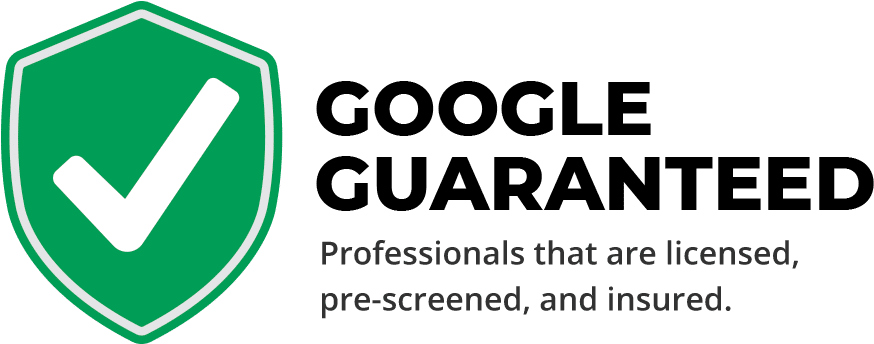Table of Contents
ToggleCar Seat, Booster Seat & Seat Belt Laws in Fort Lauderdale, Florida
The car seat, booster seat, and seat belt laws in Fort Lauderdale make seatbelts mandatory for all drivers and passengers, with few exceptions. Children under the age of five are required to use a child restraint device.
There are good reasons for these laws. From the 2017 statistics collected by the National Highway Traffic Safety Administration (NHTSA) in fatal passenger vehicle accidents, 47 percent of the people killed were not wearing seat belts. It was estimated that wearing a seat belt saved 14,955 people, and possibly 2,549 more could have survived if they had worn one. Though the three-point seat belt was created in the 1950s, it was not mandatory in American cars until 1968. Since then, it has been a part of the U.S. Code under Chapter 301: Motor Vehicle Safety.
Even though the NHTSA reports that 90 percent of people wear seat belts while operating their vehicle, there is still a percentage that does not. For more information contact our accident lawyer in Fort Lauderdale
Seat Belt Laws in Fort Lauderdale
Florida Statutes § 316.614 sets the state’s car seat laws. It works in conjunction with the regulations and standards set by the federal government. Most vehicles and their operators must have and use a seat belt for the safe operation of the vehicle. Under the law, it is illegal to operate or even ride in a vehicle unrestrained. This includes passengers in the back seat of the vehicle.
There are exceptions to the seat belt laws. Some vehicles are not required to provide or implement seat belts, such as:
- School buses
- Transportation buses
- Some farm equipment, such as tractors
- Trucks weighing over 26,000 pounds
- Motorcycles, mopeds, and bicycles
In addition to those vehicles not required to have a seat belt, there are exceptions for the use of a seat belt. For example, if you have a doctor’s certified medical condition that wearing a seat belt may prove dangerous for you, you are excluded from wearing it.
Certain Occupations Carry Exemptions To Wear The Seat Belt
Certain occupations carry exemptions. Home newspaper delivery services do not have to wear a seat belt while working. Waste collection workers are also exempt from using a seat belt while they are collecting trash. The same is true with postal services.
All other times, though, the seat belt must be worn. Another unique exemption is recreational vehicles. Recreational vehicles do not require their passengers to be restrained while the vehicle is on the road, and they are in the living areas of their vehicle. The same principle applies to passengers in the holding section of a delivery truck or van.
You Award By The Court May Reduce If You Note Wear A Seat Belt in Fort Lauderdale, FL
Lastly, the state recognizes seat belt violations as evidence of comparative negligence. If you were to be in an accident, and you suffered injuries, then any negotiated settlement or court award you collect may be subject to a reduction in value based on the degree to which your own negligence lead to your injuries. For example, if the court award is $10,000, but it finds that you are 10 percent responsible for your own injuries because you did not wear a seat belt, your award may be reduced to $9,000.
Child Restraint Laws in Fort Lauderdale, Florida
A separate section of the car seat belt laws is child seat laws under Florida Statutes § 316.613. Any child five years old or younger must be restrained in a safety device that meets federal guidelines. Children three years and younger, the safety device must be a separate carrier.
Again, there are exceptions to this law in addition to the vehicle exemptions listed above. If the child is four to five years old, the child may use a seat belt if he or she is being transported by someone other than a family member, in a medical emergency, or has a medical exception.
We Can Help To Understand Florida Car Seat Belt, Laws
If we feel the Law Offices of Wolf & Pravato can help, we can offer further assistance with gathering evidence, determining a fair settlement value, and negotiating on your behalf. We can handle all communications between you and the insurance companies, keeping you posted on any changes to your case and explaining any difficult legal terms or laws you may encounter. If necessary, we can even represent you at trial.
Call the Law Offices of Wolf & Pravato Today
If you have suffered injuries in a car accident, or if you have further questions regarding the state’s car seat and booster seat belt laws, call personal injury attorneys Fort Lauderdale at Law Offices of Wolf & Pravato at (954) 633-8270 today. We can review your case for free, informing you of your legal options for pursuing compensation for your losses.
We offer all these services on contingency. You pay nothing up front. We only collect when we win a fair settlement or a court award. You have nothing to lose by calling. Call us today.
FAQs about Car Seat, Booster Seat & Seat Belt Laws in Fort Lauderdale
The following are common questions about car seat, booster seat, and seat belt laws in Fort Lauderdale:
1. When Can a Child Use a Booster Seat with a Seat Belt?
According to Florida Highway Safety and Motor Vehicles (FLHSMV), you can start considering a booster seat when your child is between the ages of four and five.
During this age period, children should use a forward-facing car seat with a harness until they outgrow it. This varies by child, but do not change your child to a booster seat if they are still too small to sit in it with a seat belt on—even if they are past the normal age range for a booster. All children should sit in their booster seat in the back seat, as it is safer for children should an accident occur.
2. Can My Four-Year-Old Sit in a Booster?
If your child has outgrown their forward-facing car seat and is tall enough to sit with a booster seat and seat belt, then yes, they can safely use a booster. To understand how to determine whether your child has outgrown their harness seat, Buckle Up for Life recommends that they should be at least:
- Four years of age
- 40 pounds in weight
- 35 inches tall, or nearly 3 feet tall
- Have the maturity level to keep their seat belt securely on their chest throughout the car ride
The National Highway Traffic Safety Association (NHTSA) states on their website that parents can start considering many booster seat options once their child meets the above criteria.
3. What Are the Rules About Booster Seats?
Per Florida Statutes § 316.613, all children aged five and younger must ride in a vehicle in an appropriate child restraint device. Children aged four or five can use a booster seat to satisfy this rule. Different types of booster seats that may be used include:
- High back booster seats
- Backless booster seats
- Combination seats (seats that transition from forward-facing harness seats to boosters)
- All-in-one seats (seats that transition from rear-facing to forward-facing harness seats, then boosters)
Other minimums for your child to safely use a booster seat include a weight minimum of 40 pounds and a height minimum of 35 inches. The American Academy of Pediatrics (AAP) also recommends waiting until the child’s shoulders grow above the harness seat and when their ears have reached the top of the regular car seat.
4. What Is the Height and Weight Necessary for No Booster Seat?
The Florida Department of Children and Families (FLDCF) provides guidelines on when to know if your child is ready to travel without a booster seat in the vehicle:
- They are at least 4’9” tall.
- They can comfortably sit all the way back in the seat with their knees bent at the seat’s edge.
- The buckle is around their chest, not their neck.
5. Are Booster Seats Illegal?
Booster seats are not illegal. In Florida, children aged four and five are required by law to ride in a booster seat or another child restraint device when traveling. Failure to abide by child restraint laws can result in a $60 fine and three points added to your driving record, according to the Florida Department of Transportation (FDOT).
If you or your child was in a car accident, our legal team can help. Let us answer your questions and explain how to move forward with your case. Call us for your free case review at (954) 633-8270.




















